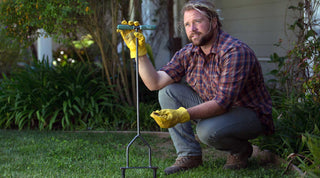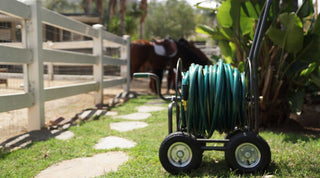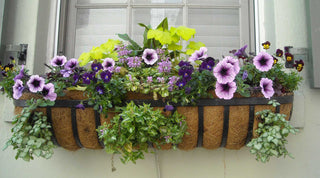
Hi, folks. Grab your boots and your gardening gloves because we're diving into the wonderful world of fall composting. If you've ever wondered what to do with all those leaves that blanket your yard in the autumn, you're in for a treat. In this guide, we're going to show you how to turn those leaves into pure gold for your garden. So, gear up, and let's get started.
Why Compost in the Fall? Benefits of Fall Composting
Fall is a magical time for composting. As the trees shed their leaves, you've got a free and abundant source of organic matter just waiting to be transformed into nutrient-rich compost. By composting in the fall, you can:
- Reduce Waste: Instead of bagging up and sending those leaves to the landfill, you can put them to good use in your garden.
- Enrich Your Soil: Fall composting helps improve soil structure and adds essential nutrients, setting the stage for healthier plants in the spring.
- Prepare for Winter: Compost acts as a natural insulator, protecting your plants' roots from the cold winter chill.
Maximizing Your Garden's Potential
Think of fall composting as an investment in your garden's future. The compost you create now will pay dividends when spring rolls around. It's like planting a garden savings account!
Getting Started with Composting
Choosing the Right Composting Method
There are several composting methods to choose from, including traditional compost piles, bins, and even vermicomposting (composting with worms). Pick the method that suits your space and needs.
Collecting Fall Materials
Gather fallen leaves, grass clippings, kitchen scraps, and other organic matter. Avoid materials like diseased plants or pet waste, as they can introduce problems into your compost.
Layering Your Compost
Balancing Green and Brown Materials
Compost is all about balance. Green materials like kitchen scraps and fresh grass provide nitrogen, while brown materials like leaves and straw provide carbon. Aim for a 2:1 ratio of brown to green for the best results.
Avoiding Common Composting Mistakes
Watch out for common composting pitfalls, such as compacted piles, excessive moisture, or too much of a single material. A well-balanced compost pile should be moist but not soggy, and it should have good airflow.
Managing Your Fall Compost Pile
Temperature and Moisture Control


Composting is like cooking for your garden. Keep your pile cooking by maintaining a temperature between 110°F to 160°F (43°C to 71°C). Regularly check the moisture level, aiming for the consistency of a wrung-out sponge.
Turning and Aeration
Give your compost pile a good stir every few weeks to introduce oxygen, which speeds up decomposition. Think of it as giving your compost a breath of fresh air. A Compost Aerator or Twist Tiller will make this much easier.
Patience Pays Off
Understanding the Composting Process
Composting is a slow dance, not a quick sprint. It can take anywhere from a few months to a year for your compost to fully mature. Be patient, and nature will do its thing.
Timeline for Nutrient-Rich Compost
For spring planting, start your fall compost early—ideally a few months before you plan to use it. This will give it plenty of time to break down into that beautiful, crumbly black gold your plants will adore.
Using Your Fall Compost
Preparing Your Garden for Winter
Before the frosty weather sets in, spread a layer of your finished compost over your garden beds. It acts as a cozy blanket for your plants, keeping them snug during the winter months.
Springtime Benefits of Fall Composting
When spring arrives, you'll be greeted with soil that's teeming with life and ready to nurture your garden to its fullest potential. Your plants will thank you with vibrant blooms and bountiful harvests.
Troubleshooting
Dealing with Common Composting Issues
If your compost pile isn't behaving as it should, don't fret. We've got tips and tricks to tackle common problems, from funky odors to pesky critters.
Tips for a Successful Fall Compost
Remember, composting is a journey, not a destination. Keep these tips in mind to ensure your fall composting adventure is a success.
Conclusion
So there you have it, folks—a down-home guide to fall composting. With a little patience and some good ol' leaves, you can turn your garden into a paradise of thriving plants come springtime. So, grab that pitchfork, embrace the autumn breeze, and get ready to turn those leaves into gold. Your garden will thank you, and you'll feel like a composting wizard in the process!







